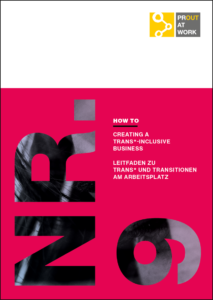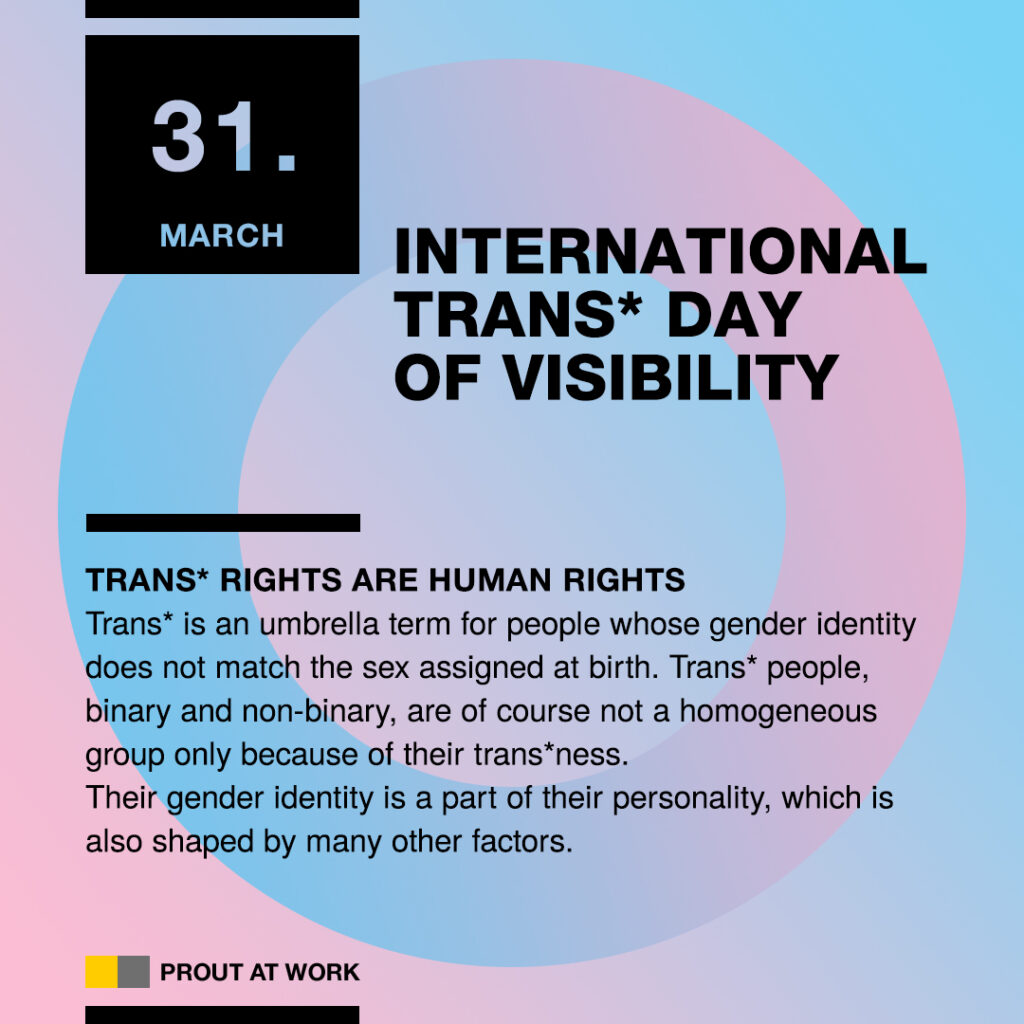
Trans* Day of Visibility (TDoV) has taken place each year on March 31 since 2009. The day is dedicated to raising awareness and visibility for trans* people and drawing attention to existing discrimination and transphobia. The day also provides a special opportunity for cis people to show solidarity with trans* people and stand up for equal rights. For us it is clear: #TransRightsAreHumanRights.
Trans* is used adjectivally and serves as an umbrella term for people whose gender assigned at birth does not match their gender identity. The asterisk (also asterisk) represents the multiplicity of possibilities of gender identities and gender expressions. Trans* thus refers to a diverse spectrum of identities, lifestyles and concepts that do not (want to) be located exclusively in a binary way.
All people should have the right to determine their own definition of their gender identity. The so-called “Transsexuellengesetz” (TSG) has prevented this for decades and is an example of the ongoing discrimination against trans* people. A new self-determination law must replace the TSG in order to protect trans* people from lengthy and humiliating procedures and make it easier to uphold their basic and human rights.
More information about trans* and trans* people can be found on Queerlexikon.
On the occasion of this year’s TDoV, we want to present you with the books “Being Human” by Alice Oehninger and “Ich bin Linus: Wie ich der Mann wurde, der ich schon immer war” by Linus Giese, the movie “Trans – I Got Life” and the MyStory’s by Hanna Brungs and Marit Wiechmann, personal stories of trans* people, but also tips and information about trans* at the workplace via our How To Guide No. 9 “Trans* and Transitions at the Workplace”.
ICH BIN LINUS: WIE ICH DER MANN WURDE, DER ICH SCHON IMMER WAR By LINUS GIESE

Linus has suspected that he is trans* since he was six years old. But out of shame and ignorance about terms such as queer, trans* and non-binary, he hid his true self for a long time. In 2017, he frees himself from his old life with the sentence “I am Linus”. In his book, Linus Giese also talks openly about the highs and lows of his journey, on which he repeatedly encounters hatred, especially on the internet. But that doesn’t stop him from standing up for the rights of trans* people.
Bein Human – An Autobiography by Alice Oehninger
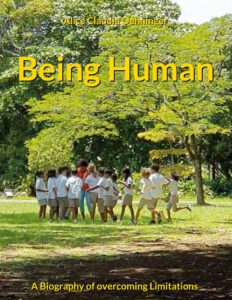
Alice is trans*. She looks like a white boy. In traditional Tanzania, she is expected to play this role. She goes through love and rejection and discovers a strong desire to be a parent. Playing the role of a man, she marries and finds happiness in Germany until a crisis destroys her fragile world.
Meetings and border crossings in cultures and gender. A very personal story that touches and invites reflection.
Trans – I Got Life
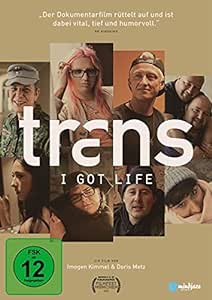
TRANS – I Got Life distils the broad spectrum of trans identity from the life stories of seven charismatic people. TRANS – I Got Life is a sensual journey into the in-between worlds beyond fixed gender norms, into intimate living spaces and into surgery, which becomes a delivery room for a second birth. In a subtle and multi-layered way, the trans experience is also transferred to the visual and audio level.
Creating a trans*-Inclusive Business – How To Guide Nr. 9
The guide covers the topic of trans* in the workplace and addresses employers, colleagues and trans* people themselves. It contains tips, information and experience reports to raise awareness and educate people on the topic. In addition, an exemplary process of a transition at the workplace is outlined and assistance for communication is offered.
Night of Realization – MyStory with Hanna

For a very long time I was searching for myself and at times I confused this with the search for other, material things – and I had to realize that these things did not really make me happy.
TRANS* IS SOMETHING WONDERFUL – MyStory with MArit Wiechmann
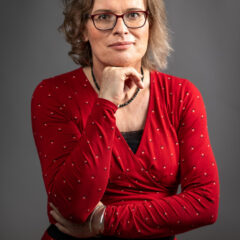
As a woman, I now have the courage to do things, make decisions and accept help. Why? What could happen if something goes wrong? After all, I am a human being with strengths and weaknesses and I am allowed to make mistakes, but also to be successful.
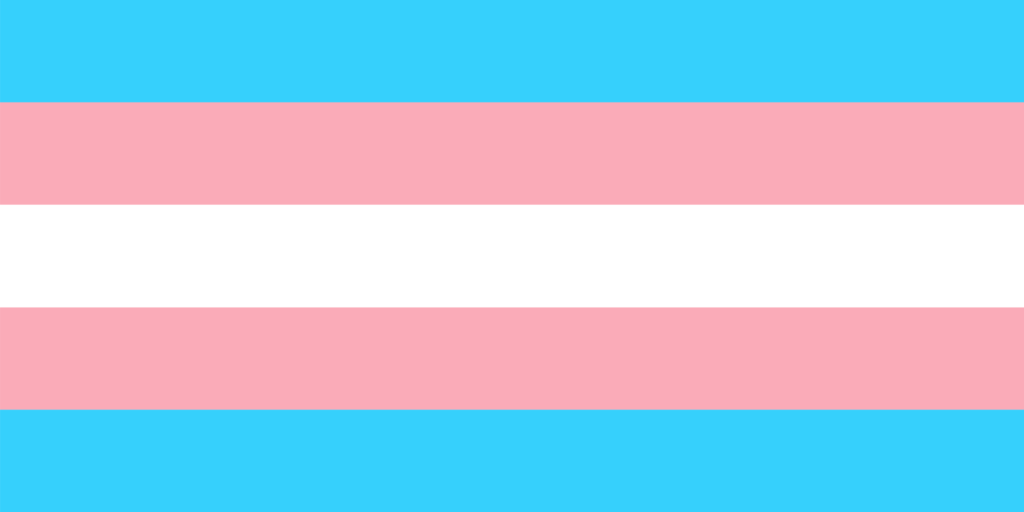
The International Transgender Day of Visibility takes place on March 31. This day should be used to empower the trans* community, create awareness for trans* topics and draw attention to existing discriminatory structures. We would like to contribute again this year to achieve more visibility for t* in LGBT*IQ.
To kick off the event, we held a panel on March 29th with the topic “trans* at work – existing difficulties & discrimination-free transitions”. Together with our panelists Julia Monro and Andrea Schuler, we mainly talked about stressful situations that trans* people can find themselves in during their transition. We illuminated these negative moments, let trans* people speak with their individual experiences in order to make existing discriminatory structures visible. It is important for us to present this side as well, in order to see and work out where there is room for improvement for companies and the responsible parties – and thus for the trans* people concerned. This way, mistakes can be avoided in the future, allowing more trans* people to look back on their transition in their company with positive feelings.
Panelists:
Julia Monro
Julia supports the German Society for Transidentity and Intersexuality e.v. in public relations and offers counseling for transgender people. In 2018, she founded her own project called Transkids and offers workshops at schools as a lecturer of the Pädagogisches Landesinstitut. She is involved in the trans* community to improve the living situation of transgender people and reports, among other things, from her own biography of experiences of discrimination in society and the world of work.
Andrea Schuler
Andrea Schuler’s area of expertise is the impact of gender diversity in social and professional contexts. After completing her Bachelor of Arts in Management of Social Innovations, Andrea was involved in the ERASMUS+ project Transvisible on the labor market integration of trans* people for the German Trans* Association. There, she collaborated on the publication TransVisible – A Guide for Better Labor Integration and Economic Empowerment of Trans* Women, among others. Andrea works as a psychosocial counselor at the Trans*Inter*Beratungsstelle München.
In the panel, the two experts asked the following question, among others.
“HOW CAN EMPLOYERS POSITION THEMSELVES TO MAKE TRANSITIONS GO WELL?”
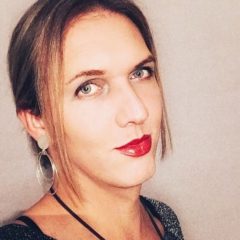
Julia Monro, FREELANCE JOURNALIST AND TRANS* ACTIVIST
“Enormously important is the orientation to the person themselves, i.e. they set the pace and the direction. This additionally conveys appreciation and respects self-determined decisions, which increases satisfaction and loyalty.”
Andrea Schuler, CONSULTANT AND TRAINER, TRANSINTERCOUNSELING CENTER
“Many trans* people leave the company before they transition. So it’s incredibly important that a company sets the framework in advance for a good, shared, safe transition.”

n addition, in order to show examples of how a good and joint transition can work in the company, besides the existing difficulties, we asked trans* people the following question.
“WHAT HELPED YOU THE MOST IN A PROFESSIONAL CONTEXT DURING TRANSITION?”

Alice Oehninger, BIOLOGY LABORATORY TECHNICIAN TRAINER, BOEHRINGER INGELHEIM
“The uncomplicated change of form of address and e-mail, etc., even before my official name change helped me immensely. My colleagues have always addressed me correctly from the beginning. Their trust and flexibility have strengthened me enormously.”
Adrian Hausner, Site Reliability Engineer, Google Germany GmbH
“I was especially helped by the ‘Trans at Google’ network. Having a community like that behind you is immensely empowering, and the fact that discrimination against trans* people is absolutely not accepted, plus the ability to use gender-neutral restrooms. That’s also very important for non-binary colleagues.”

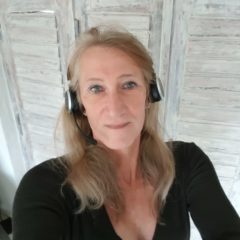
Leonora Friese, Business Consultant, AXA Konzern AG
“During my coming out and transition, I benefited especially from the support I received from HR. For example, by informing the workforce with an interview in the employee newspaper, a panel discussion on DiversityDay and a video about me and my work in the Group. Together we also developed a guideline on coming out and transition, so that we can continue to support other people in the future.”
THE PERSON QUOTED WISHES TO REMAIN ANONYMOUS
“As a non-out, non-intersex non-binary trans* person, I would experience a great relief if my employer recognized and supported my gender identity – even if the registry offices do not. For me, this includes in particular firmly established offers to use my self-chosen first name wherever it is legally possible – e.g. in daily interactions, in e-mail addresses, on door signs, etc.”

Joschua Thuir, HEAD OF TEACHING GROUP | SPECIALIST TEACHER FOR LAW AND ADMINISTRATION, FEDERAL POLICE FORCE
“I was very happy to be able to fall back on an official contact person who is also trans* before my outing at the workplace. Since she had already gained outing experience in the authority and shared it with me, I was well prepared for negative reactions, indiscreet questions and other unpleasant situations.”
Franka Uhlig, BUSINESS INFORMATICS SPECIALIST, IBM GERMANY GMBH
“After coming out, I immediately received positive signals from my management and HR. Particularly helpful was the support in changing my name in the online systems, on my employee ID card and on my mail address, so that I could quickly ensure my appearance as a woman in the company and to customers.”
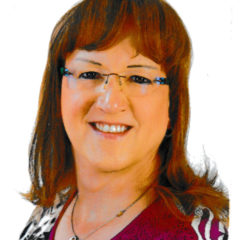
What can help me as a trans* person in a professional context? What counseling centers are there that I can turn to? Besides answers to these questions, we also offer an excerpt of possibilities that companies have to accompany a transition well. In addition, there are further tips for trans* persons and on the question of how you can be an Ally by supporting colleagues in transition.
FURTHER TIPS FOR TRANS* PEOPLE
The people quoting already offer some insight into support options. Here at a glance is an excerpt on further assistance:
- Seek allies and role models within the company.
- If possible, work with the company to create a communication and action plan.
- Very important: You set the pace!
- Connect with the LGBTIQ network, if one exists. We have compiled a list of LGBTIQ networks in companies and organizations.
TIPS FOR COMPANIES AND ALLIES
- A Transition Guide clearly specifies who is responsible. Note: the trans* person determines the pace and whether an action should be implemented. Every transition is individual.
- Enable name and pronoun changes before the official decision is made.
- Training sensitize HR and management
- Establish and strengthen an internal LGBTIQ network with dedicated trans contact persons
- Inform yourself about the topic trans*
- Use gender inclusive language, ask for a person’s pronouns so they use the one chosen by the trans* person and not their deadname. Deadname is the old, discarded name of a trans* person.
- Only ask questions that you would answer yourself
- Consciously stand up for the rights and against the discrimination of trans* persons
ADVISORY SERVICES (GErmany)
FEDERAL TRANS* ASSOCIATION
“The Bundesverband Trans* (BVT) sees itself as a union of individuals, groups, associations, federations and initiatives at regional, state and national level whose common endeavor is the commitment to gender diversity and self-determination and the commitment to human rights in terms of respect, recognition, equality, social participation and health of trans people or those not located in the binary gender system.”
GERMAN SOCIETY FOR TRANSIDENTITY AND INTERSEXUALITY E.V.
“The dgti has set itself the goal of promoting the acceptance of transidents within society and counteracting their stigmatization. It should advise and support affected and interested persons, if so desired. An essential aspect of the work should be the (re-)integration of affected people into the work process, in order to counteract the danger of social decline, which is still associated with social change today. It advocates more openness to one’s own identity and takes into account the diversity of human existence.”
Transmann e.V.
“Nationwide, volunteer-based, non-profit association for all woman-to-male (FzM/FtM) trans* and inter* people.”
TransInterQueer e.V.
“TrIQ is a social center and a politically, culturally and in the research field active association, which stands up for trans, intersex and queer living people in Berlin and beyond.”
TRANS*INTER*COUNSELING CENTER
“The project of the Münchner Aids-Hilfe e.V. is equally there for trans* and inter* people as well as their relatives and friends.”
TGEU
“TGEU is a membership-based organization that was founded in 2005. Since then, TGEU has grown steadily and established itself as a legitimate voice for the trans* community in Europe and Central Asia, with 157 member organizations in 47 different countries.”
Questions?
Contact us with questions and concerns about trans* in the workplace! We are happy to help.

